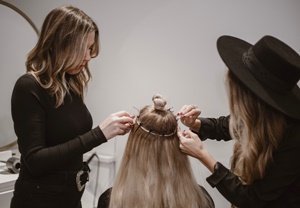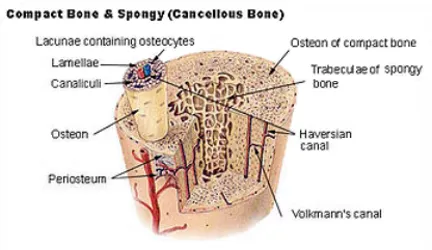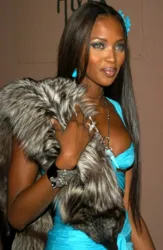
Can Hair Extensions Lead To Hair Loss?
 Can Hair Extensions Lead To Hair Loss? Ariana Grande - Wikipedia - Famous For Wearing Hair Extensions
Can Hair Extensions Lead To Hair Loss? Ariana Grande - Wikipedia - Famous For Wearing Hair ExtensionsOne thing I have learned over the years is that there is never an absolute answer when it comes to hair.
While it's true that a long history of utilizing hair extensions, especially those that apply pressure to the roots of the hair, can at some point cause challenges with traction alopecia, which is a form of hair loss, it doesn't mean it will happen.
Or even that it will happen to everyone.
New studies are indicating that hair extensions may cause hair loss issues.
The studies are just the tip of the iceberg.
There are too many variables that must be considered before making a blanket statement that hair extensions can lead to hair loss.
Hair Extension Hair Loss Risk Factors
What should be considered when weighing the risk of hair extensions and hair loss are the following items:
1. Age of the person getting the hair extensions.
2. Type and thickness of the hair that will have extensions added.3. Current health of the scalp where extensions will be attached
4. Type of hair extension methods utilized, such as temporary or semi-permanent(weaves, fusion, beads, tape, or other methods)
5. How long will the extensions be continuously worn6. Expertise of the hair extension technician
7. History of scalp problems8. Genetic predisposition towards hair thinning or loss
9. Overall health of the hair extension clientsHair Extensions Will Always Or Never Lead To Hair Loss
 Can Hair Extensions Lead To Hair Loss? Photo by Lucas Lenzi - Unsplash.com
Can Hair Extensions Lead To Hair Loss? Photo by Lucas Lenzi - Unsplash.comTo simply say hair extensions can lead to hair loss is just as misleading as saying hair extensions will never lead to hair loss.
One statement does not fit all types of people, scalps, hair, or types of extensions.
With every hair and beauty treatment, there are always two sides to the coin. While there are many positive reasons for wearing hair extensions, there are also challenges.
While celebrity trends are currently driving more hair consumers to consider hair extensions, it doesn't mean that women in the world who wear them will all have hair loss.
Advantages Of Hair Extensions
The advantage of hair extensions is that they can offer a wide range of different looks and styles in a short period of time.
It eliminates the need to spend many months or years growing out a bad haircut, perm, chemical treatment, or bangs.
It also eliminates a long waiting period for having super long tresses.
Hair Extensions Can Lead To Permanent Hair Loss
 Can Hair Extensions Lead To Hair Loss? - Image By Lindsay Cash - Unsplash.com
Can Hair Extensions Lead To Hair Loss? - Image By Lindsay Cash - Unsplash.comWhy is all the chatter about hair loss concerns tied to hair extensions?
A study published in the British Journal of Dermatology last year reported that extensions could lead to permanent baldness.
Even more concerning is that the problem might be more common than reported.
It's true that extensions attached too close to the scalp or to very few strands of hair can put great tension on follicles in the scalp, which can become inflamed, causing hair to fall as a result.
Traction Alopecia
 Can Hair Extensions Lead To Hair Loss?- maxzzerzz - Unsplash.com
Can Hair Extensions Lead To Hair Loss?- maxzzerzz - Unsplash.com This is known as traction alopecia.
Traction alopecia can also occur when hair is pulled tightly back from the hairline and pulled into tight ponytails or braids.
If a hair extension plan is formulated to make sure the hair has resting periods in-between hair extension applications and the hair is not applied so as to apply undue pressure to the follicles, a lot of the known dangers of falling hair, bald patches, or other repercussions of wearing hair extensions can be avoided.
The key is to always evaluate the various risk factors. Then move forward or not move with a crystal clear vision of all the options.
More Information
Please follow me on Twitter at: http://Twitter.com/HairBoutique. I look forward to meeting new people from all walks of Twitter and learning from their Tweets. Visit us at Hairboutique.com located at: http://www.HairBoutique.com, on Facebook, MySpace, and YouTube.
Thank you for visiting us at The HairBoutique Blog and for leaving your comments. They are very much appreciated. We apologize in advance but must remove any direct advertisements or solicitations.Social Media Network Information
Please follow us on Twitter at: https://Twitter.com/HairBoutique. I look forward to meeting new people from all walks of Twitter and learning from their Tweets.

















